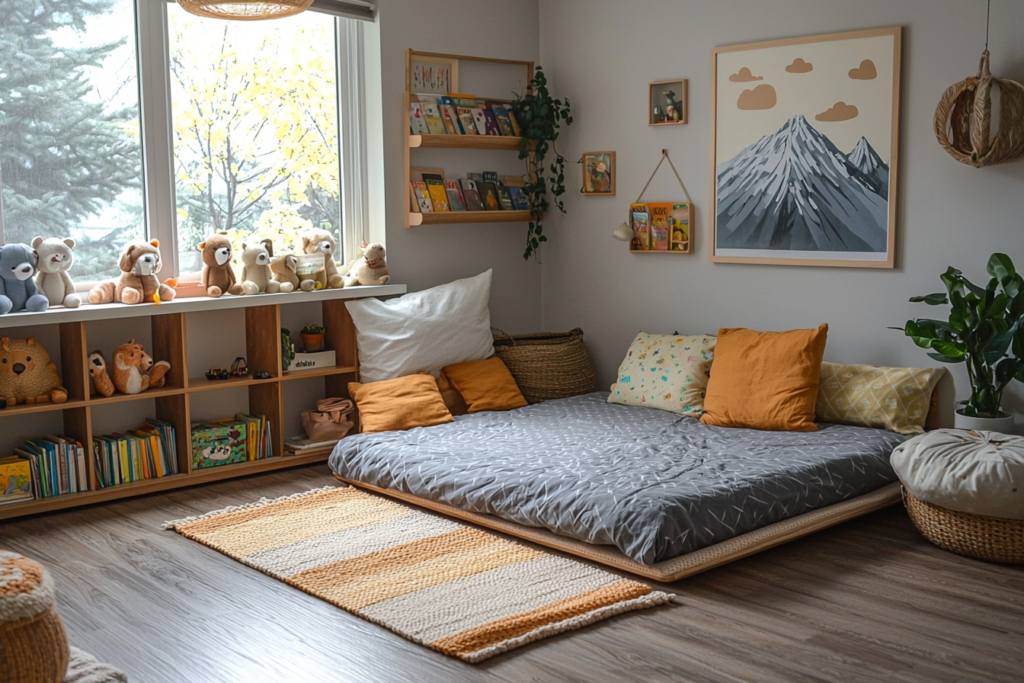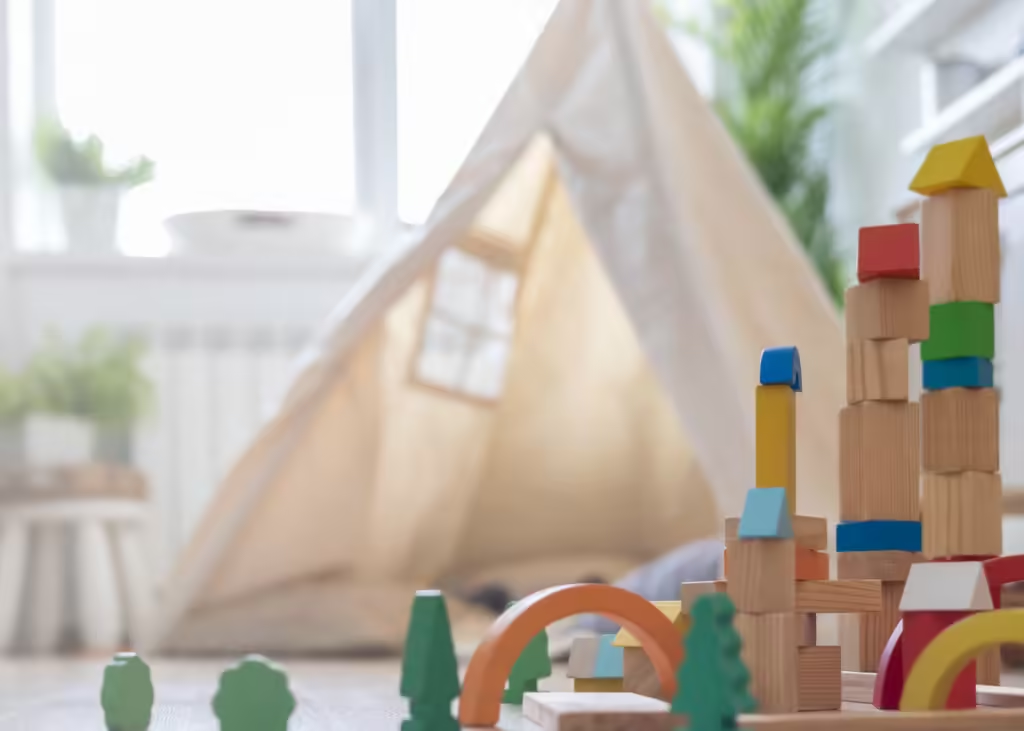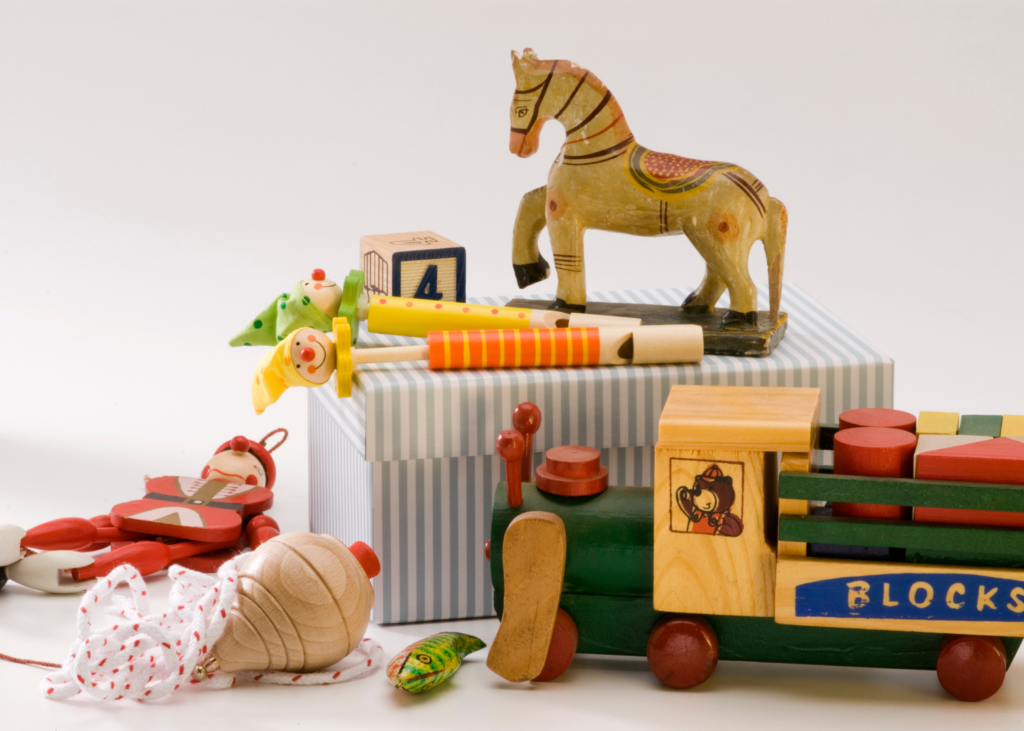This site contains affiliate links, view the disclosure for more information.
6 Easy Ways to Get Started With Montessori at Home
When people think of Montessori, they usually think of sensory bins, colorful bids, pouring and other specific activities or materials. But creating a Montessori home has much more to do with the Montessori principles that guide how we view and interact with our children.
Montessori at home isn’t about buying fancy toys or creating perfect activities – it’s about small changes to the environment and a shift in how we, as parents, approach our child’s development.
Applying Montessori at home can seem overwhelming at first, but by focusing on the Montessori principles, we can foster a more nurturing and respectful home where children thrive. Here are six simple ways to get started.
Read more: A Beginner’s Guide to the Montessori Method.
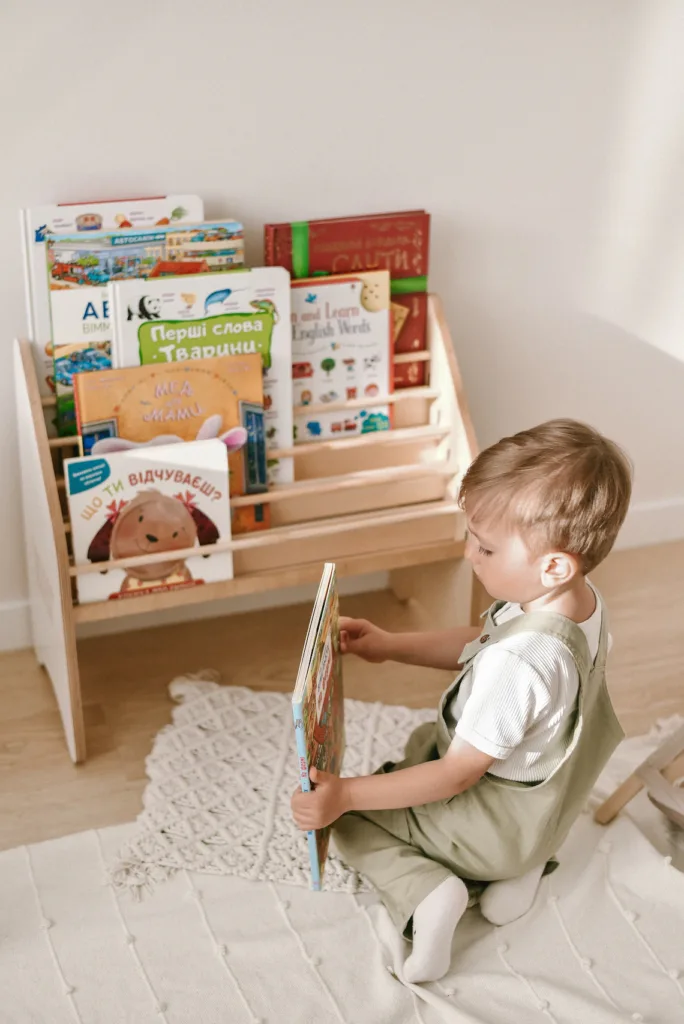
1. Prepare the environment
A prepared environment is one of the core Montessori principles. It’s about creating a space that allows your child to explore, learn, and grow independently.
A prepared environment is:
Clean and organized: Keep things clutter-free and simples. This helps your child develop focus and engage deeply with toys or activities.
Minimalist: Montessori rooms tend to be neutral, with mainly wooden or white furniture, because this avoids overstimulation and promotes a calmer state. Less is more when it comes to toys, furniture, and decor. Toy and book rotation is highly encouraged, so we keep kids interested but avoid overwhelming them with too many options.
Accessible: Child-height furniture, low-shelves, and items within reach are key. This empowers your child to explore their surroundings independently. This includes not only toys and books, but also clothes, healthy snacks, simple cleaning supplies, and tableware. A Montessori-style step stool is a great option when keeping things at child-height is not possible.
Baby/toddler-proofed: In Montessori homes, anything within a child’s reach should be safe for them to interact with. This creates a sense of trust and freedom to explore.
Read more: How to Start a Quick and Easy Toy Rotation System.
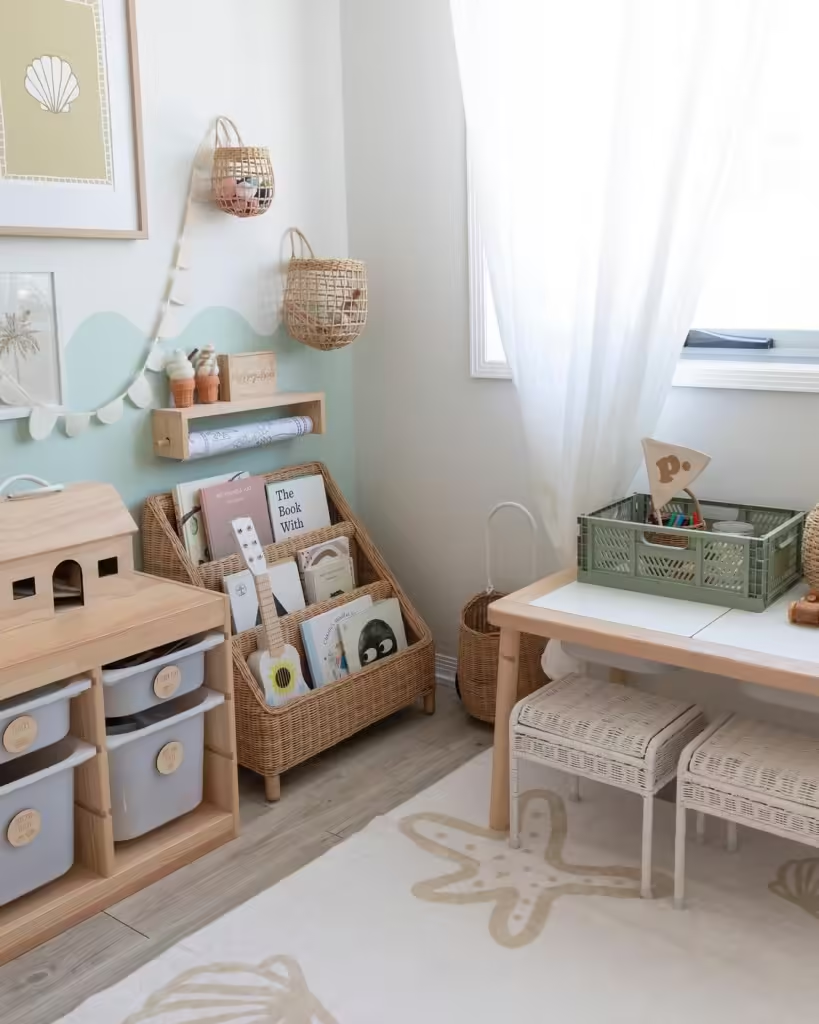
Image by @phoenixandtheocean
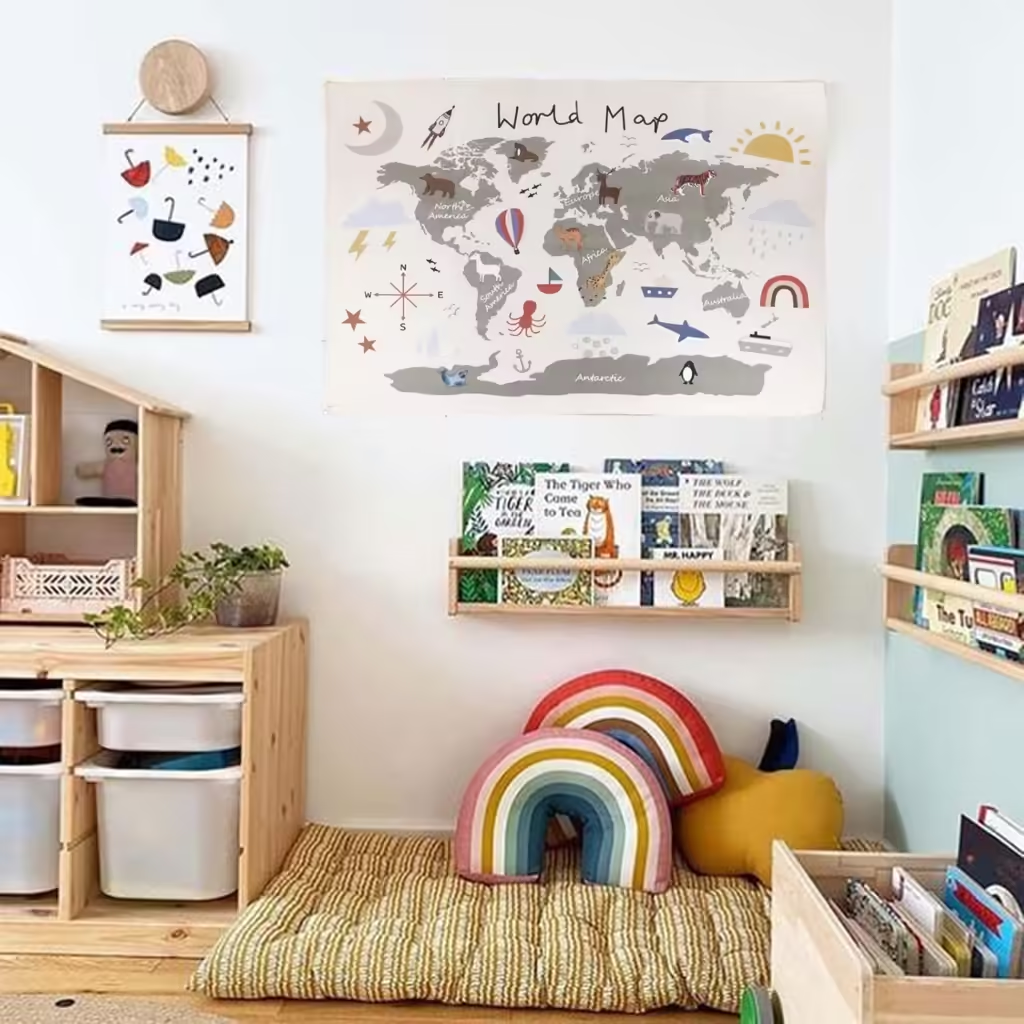
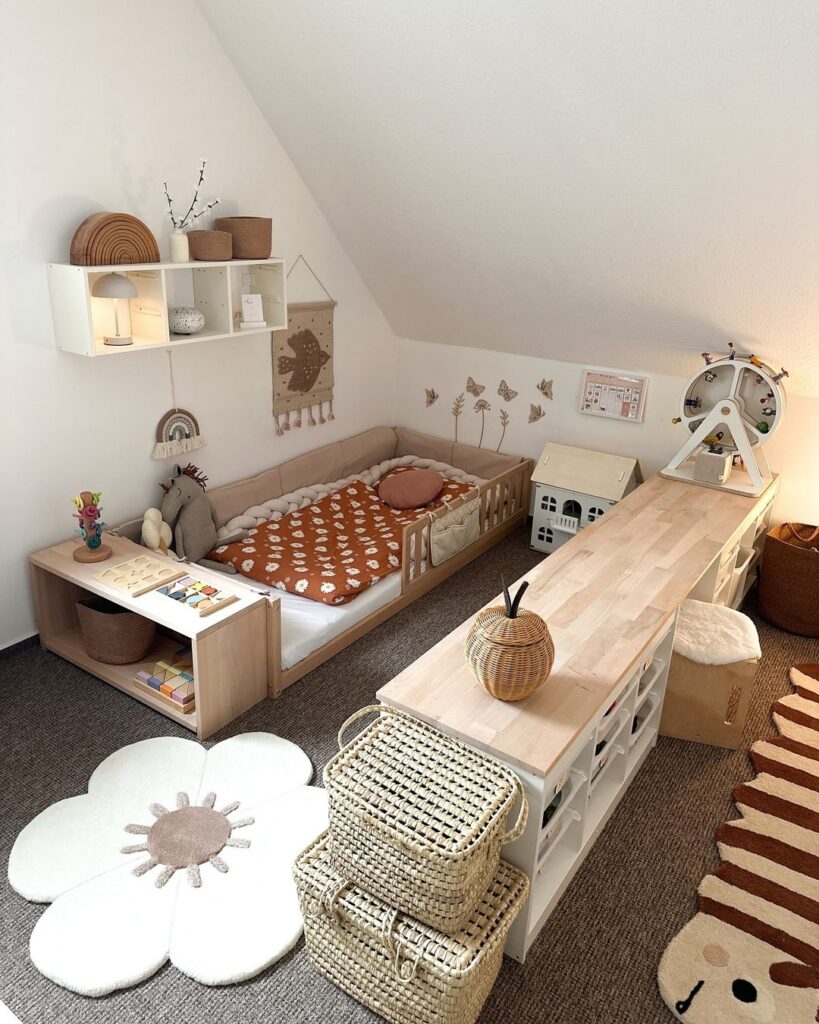
Image by @sunny_wohnfuehlen
2. Include your child in family chores and activities
Montessori emphasizes the importance of integrating children into daily family life. Children feel Valued and capable when they’re included in chores and activities.
Young children naturally see tasks like sweeping, setting the table, or folding laundry as fun. Invite them to help, but don’t force them to.
By involving them in real-life activities, we give our children a sense of belonging and purpose, and help them develop essential life skills.

3. Take your child seriously and respect them profoundly
Maria Montessori stressed the deep respect we should have for our children: “Children are human beings to whom respect is due, superior to us by reason of their innocence and of the greater possibilities of their future.”
Acknowledge requests and opinions: Listening to your child, even when the answer is “no”, shows them you take their thoughts seriously. This doesn’t mean giving in to every demand but respectfully addressing their requests.
Respect their uniqueness: Every child is different. Avoid comparing them or trying to fit them into a pre-set mold. Let their unique interests and personality guide their learning and development.
Read more: The Best Maria Montessori Quotes.

4. Build autonomy and confidence
One of the greatest gifts we can give our children is the chance to trust in their own abilities.
Trust their capabilities: Children are capable of much more than we often think. Give them time and space to try different or difficult things, even if they fail.
Avoid interrupting: Unless they directly ask for help, resist the urge to jump in too quickly. Give them time to problem-solve on their own.
Learning through mistakes: Mistakes are an essential part of learning. When children are allowed to fail and try again, they build resilience and confidence in their abilities.
“Never help a child with a task at which he feels he can succeed.” – Maria Montessori
5. Move away from constant rewards and punishments
In Montessori, the focus is on helping children develop intrinsic motivation, rather than constantly relying on external rewards or avoiding punishment.
When children are motivated by pride in their own accomplishments rather than praise or rewards, they become self-motivated learners. Allow them to feel the satisfaction of completing a difficult task or doing something on their own.
Provide a space where your children feel safe to try, fail, and try again. Encourage them to evaluate their work, make decisions, and understand the natural consequences of their actions.
While there’s nothing wrong with acknowledging their efforts and complimenting them when you really mean it, avoid empty praise such as “wow, that’s so beautiful”. Instead, show genuine interest in their work by asking thoughtful questions or sharing specific observations.
Read more: 18 Indoor Montessori Activities for Toddlers.
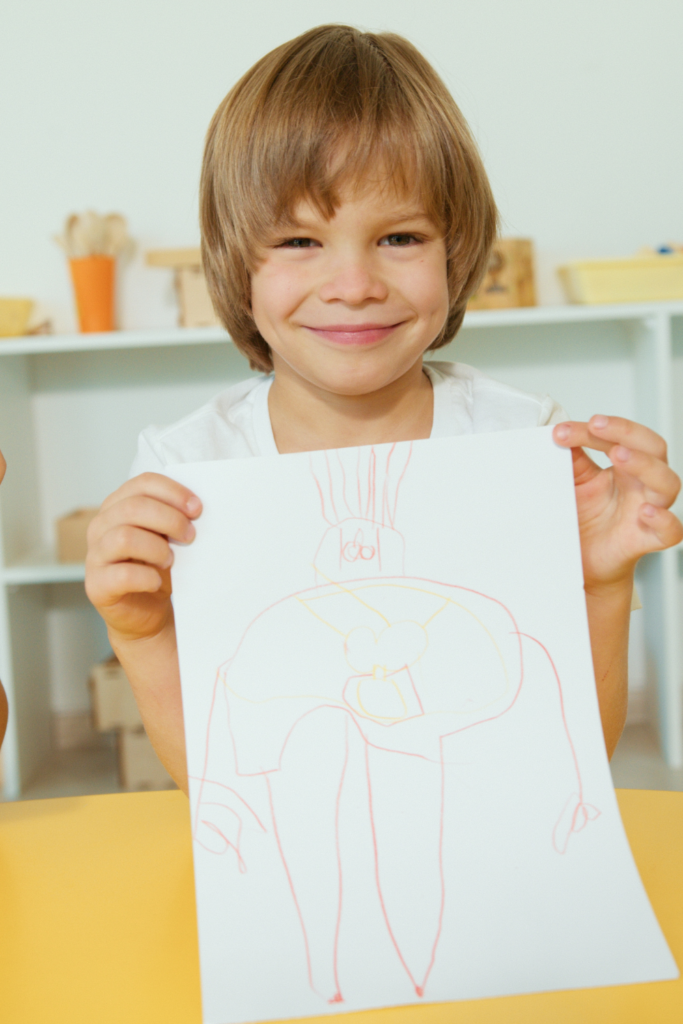
6. Be patient and kind with your child and with yourself
Parenting is a journey, and Montessori is no exception.
Don’t expect Montessori children to be perfect, they have tantrums too, and there’s nothing wrong with that! Parenting with patience and understanding will help both you and your child grow through the challenges.
Are you constantly dealing with tantrums? Here’s the best way to handle tantrums, from a neurodevelopmental perspective.
And don’t forget to give yourself grace. You’re learning alongside your child, and mistakes will happen. Avoid being overly critical of yourself – adjust, learn, and keep going.
Creating a Montessori home is indeed a lot of work, but it is the most rewarding journey you’ll probably ever experience in life. And it gets easier with time!
Montessori is such a rich universe. If you’d like to dive deeper, make sure to check out my Montessori book recommendations, from beginner-level to advanced.
Thank you for making it this far! I hope you found this blog post helpful!

